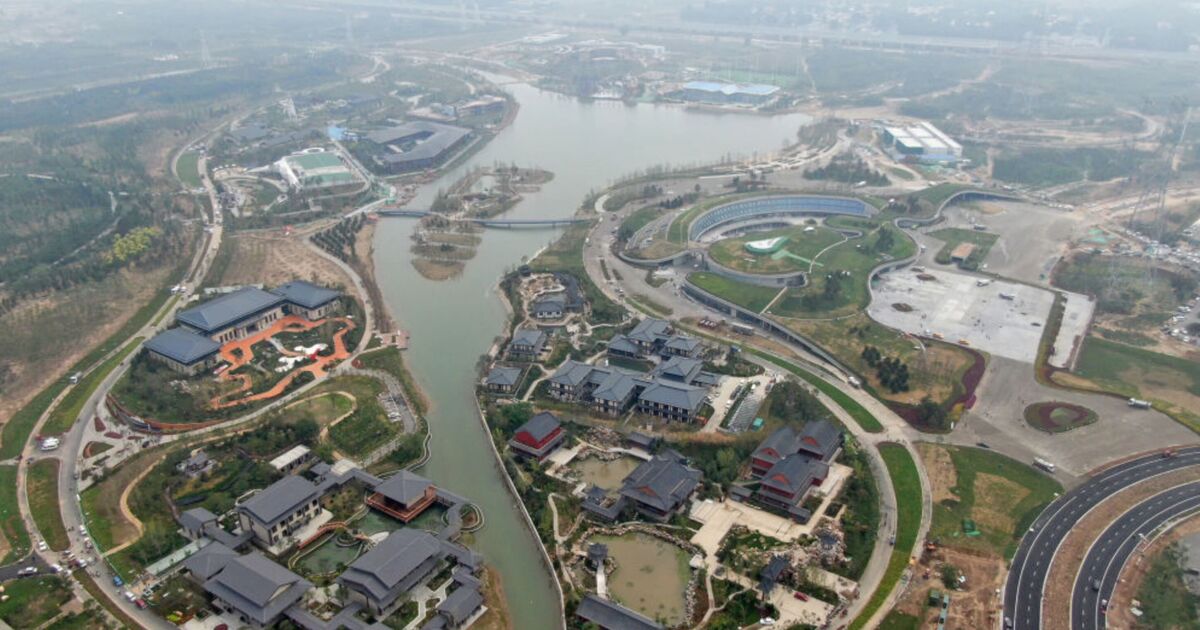A ‘ghost town’ in China that cost $85billion (£70billion) to build had been labelled ‘boring’ by one of its few residents.
The city of Xiong’an, in the province of Hebei, was established in 2017. China described it as a ‘model city in the history of human development’ after the project was launched by the country’s president Xi Jinping.
One local told the Times the city is ‘boring’. She added: “There isn’t much social life. Young people all work overtime, and there aren’t many opportunities for leisure or socialising. As for finding a boyfriend, you’ll just have to make do with hoping your friends provide.”
Xiong’an’s futuristic town planning has created a network of fibre optic cables buried underground. In theory it operates everything from facial recognition systems to self-driving cars.
President Jinping is attempting to reassure investors and citizens that the city is more than just a ghost town and has a prosperous future.
State media claims 1.2 million people already live in the city. This number might be swelled by the residents in the three counties that have been merged under its name. It is eventually intended to house around five million people.
It comes after images displayed a new £3bn tunnel that runs through a mountain and will be world’s longest.
Construction of the project in China began in 2016 and is due to be completed in 2031. The motorway tunnel is an ambitious project and will break records once complete.
Travel time will be significantly reduced and the tunnel, called Tianshan Shengli, is set to open to traffic in October 2025. Drivers will be able to get through the mountains in just 20 minutes.
At a total of 13.7 miles, the Tianshan Shengli tunnel will also cut travel time on the 300-mile journey from Urumqi to Korla, a major city in southern Xinjiang, to less than two hours.
Xu Tianchen, an expert from The Economist Intelligence Unit, told the Sun: “Completion will certainly benefit trade and economic growth in the underdeveloped part of Xinjiang.
“Central Asia provides a reasonable return-risk mix, especially with its rich energy reserves and acceptable security situation.”







